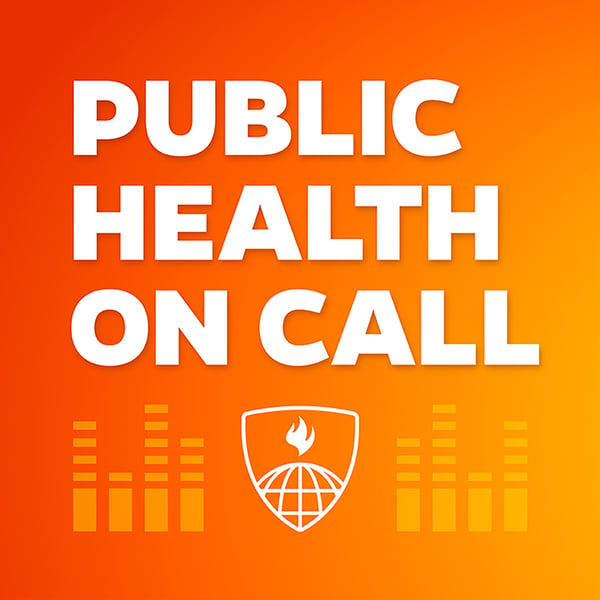910 - Climate Change and Meteorology: 2025 Update
Public Health On Call
The Johns Hopkins Bloomberg School of Public Health
4.8 • 620 Ratings
🗓️ 23 June 2025
⏱️ 12 minutes
🧾️ Download transcript
Summary
About this episode:
What might be in store for the 2025 hurricane season? Meteorologist Brian McNoldy returns to the podcast to talk about how things are shaping up, a look back at how last summer’s unprecedented mix of heat and moisture played out in an extremely active season, and a zoomed-out look at climate change trends as larger patterns beyond individual events and year-over-year comparisons.
Guest:
Brian McNoldy is a senior research associate at the Rosenstiel School of Marine Atmosphere and Earth Science at the University of Miami.
Host:
Lindsay Smith Rogers, MA, is the producer of the Public Health On Call podcast, an editor for Expert Insights, and the director of content strategy for the Johns Hopkins Bloomberg School of Public Health.
Show links and related content:
-
Meteorology and Climate Change—Public Health On Call (July 2024)
-
Get ready for several years of killer heat, top weather forecasters warn—AP
-
‘Bomb cyclone’ adds to growing extreme weather trend—News@TheU (2024)
Transcript
Click on a timestamp to play from that location
| 0:00.0 | Welcome to Public Health On Call, a podcast from the Johns Hopkins Bloomberg School of Public Health, |
| 0:05.8 | where we bring evidence, experience, and perspective to make sense of today's leading health challenges. |
| 0:16.1 | If you have questions or ideas for us, please send an email to Public Health Question at jh.edu. |
| 0:23.7 | That's Public Health Question at jh.edu for future podcast episodes. |
| 0:33.9 | It's Lindsay Smith-Rogers. |
| 0:36.1 | Today, meteorologist Brian McNoldy joins us on the podcast again for a look ahead at the 2025 hurricane season. We also talk about how last year's unprecedented heat played out in an extremely active season and about how climate change is less about individual events and year over year comparisons and more about |
| 0:55.8 | the overall picture of how things are evolving over time. Let's listen. Brian McNoley, |
| 1:02.7 | welcome back to Public Health on Call. How are you? |
| 1:05.0 | Thank you, Lindsay. I'm doing great. So we had you on a year ago. It was July |
| 1:10.6 | 2024. And at that time, we talked about how your field was really having to evolve because to some degree your work depends on weather patterns and understanding past data. And we're kind of in this era of shattering a lot of these records. And a lot of our conversation boiled down to expect the unpredictable, expect the unexpected. |
| 1:31.3 | I think we've really seen that in the last year. |
| 1:33.3 | So walk us through how that's played out since we last spoke. |
| 1:36.3 | Certainly, yeah. |
| 1:38.3 | Going into last hurricane season, we had this unprecedented, two-pronged look at what was coming up. |
| 1:45.0 | And one, we had expectations of La Nina to develop, and La Nina generally acts to enhance Atlantic hurricane activity. |
| 1:53.0 | And we also had pretty ridiculous ocean temperatures across the tropical Atlantic. |
| 1:58.0 | Say record breaking would be an understatement. |
| 2:00.0 | So extremely warm water. |
| 2:01.6 | So the two of those factors really had never been observed before together. |
| 2:07.0 | And so just to fast forward a little bit, the expected La Nina didn't quite come in quite as |
| 2:12.4 | forecast. |
| 2:13.4 | It was pretty weak. |
... |
Please login to see the full transcript.
Disclaimer: The podcast and artwork embedded on this page are from The Johns Hopkins Bloomberg School of Public Health, and are the property of its owner and not affiliated with or endorsed by Tapesearch.
Generated transcripts are the property of The Johns Hopkins Bloomberg School of Public Health and are distributed freely under the Fair Use doctrine. Transcripts generated by Tapesearch are not guaranteed to be accurate.
Copyright © Tapesearch 2025.

